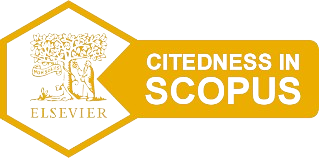Islamic Values in Coastal SME Education: A Model for Sustainable Development
DOI:
https://doi.org/10.15408/tjems.v11i2.43868Keywords:
kewirausahaan, nilai-nilai Islam, maqasid syariah, umkm, pentahelix, keberlanjutan, Islamic Values, Islamic Entrepreneurship, SustainabilityAbstract
Abstract
This study analyses the integration of Maqasid Syariah (MS) principles, including shiddiq (honesty), adl (justice), and maslahah (public welfare), in supporting the sustainability of micro-enterprises (SMEs) in Desa Segara Jaya, Indonesia. Using a qualitative case study approach, data were collected through in-depth interviews and observations with Muslim entrepreneurs. SMEs face challenges such as limited financial resources, inadequate Islamic values-based training, and insufficient infrastructure, which hinder the consistent application of ethical practices. To overcome these barriers, an MS-based educational model is required, combining workshop-based training with tailored educational programmes to address these challenges effectively, mentorship programmes with pesantren and madrasahs, and scalable digital learning platforms. Integrating technical and ethical skills helps align business practices with economic objectives and Islamic values. A collaborative Penta helix approach, engaging government, educational institutions, businesses, communities, and media, is essential for overcoming systemic barriers. Applying the MS framework and the Theory of Planned Behaviour, this research contributes to Islamic entrepreneurship studies and offers practical insights for policymakers, educators, and practitioners. Aligning SME operations with ethical principles enhances resilience, competitiveness, and sustainable development in Muslim communities navigating socio-economic challenges.
Abstrak
Penelitian ini menganalisis integrasi prinsip-prinsip Maqasid Syariah (MS), termasuk shiddiq (kejujuran), adl (keadilan), dan maslahah (kesejahteraan publik), dalam mendukung keberlanjutan usaha mikro kecil dan menengah (UMKM) di Desa Segara Jaya, Indonesia. Dengan menggunakan pendekatan studi kasus kualitatif, data dikumpulkan melalui wawancara mendalam dan observasi terhadap pengusaha Muslim. UMKM menghadapi tantangan seperti keterbatasan sumber daya keuangan, pelatihan berbasis nilai-nilai Islam yang tidak memadai, dan kurangnya infrastruktur, yang menghambat penerapan praktik etis secara konsisten. Untuk mengatasi hambatan ini, diperlukan model pendidikan berbasis MS yang menggabungkan pelatihan berbasis lokakarya dengan program pendidikan yang dirancang khusus, program pendampingan dengan pesantren dan madrasah, serta platform pembelajaran digital yang dapat diskalakan. Integrasi keterampilan teknis dan etis membantu menyelaraskan praktik bisnis dengan tujuan ekonomi dan nilai-nilai Islam. Pendekatan kolaboratif Penta helix yang melibatkan pemerintah, institusi pendidikan, dunia usaha, komunitas, dan media sangat penting untuk mengatasi hambatan sistemik. Dengan menerapkan kerangka kerja MS dan Teori Perilaku Terencana, penelitian ini berkontribusi pada studi kewirausahaan Islam dan memberikan wawasan praktis bagi pembuat kebijakan, pendidik, dan praktisi. Penyelarasan operasional UMKM dengan prinsip-prinsip etis meningkatkan ketahanan, daya saing, dan pembangunan berkelanjutan di komunitas Muslim yang menghadapi tantangan sosial-ekonomi.
How to Cite: Doktoralina, C. M., Abdullah, M. A. F., Febrian, W. D., Maulana, D., Prayogo, D. A., & Anuar Ahmad Shukor, A. S. (2024). Islamic Values in Coastal SME Education: A Model for Sustainable Development. TARBIYA: Journal of Education in Muslim Society, 11(2), 105-114. doi:10.15408/tjems.v11i2.43868.
References
Aga, M. K., & Singh, A. (2022). The Role of Entrepreneurship Education on Student Entrepreneurial Intentions : Mediating Effect of Attitude , Subjective Norms , and Perceived Behavioral Control. Journal of Business and Management, 28(March), 31–65. https://doi.org/10.6347/JBM.202203
Ahamed, G. T., & Ahammed, T. I. (2023). Exploring Islamic Entrepreneurship: Perceptions, Challenges, and Economic Contributions among Muslims in India. World Academic Journal of Management, 11(3), 1–16. https://doi.org/10.26438/wajm/v11i3.116
Ajzen, I. (1991). The Theory of Planned Behavior. Organizational Behavior and Human Decision Processes, 50(2), 179–211.
Anggarkasih, M. G., & Resma, P. S. (2022). The Importance of Halal Certification for the Processed Food by SMEs to Increase Export Opportunities. In ICAS 2021. (Vol. 00039, pp. 1–12). E3S Web of Conferences 348. https://doi.org/10.1051/e3sconf/202234800039
Bisri, Hartati, Mustopa, & Saumantri, T. (2024). Navigating Modern Challenges: The Practical Role of Triple-Relationship of Religious Moderation through an Islamic Perspective. Journal of Islamic Thought and Civilization (JITC), 14(2), 287–302.
Cahyono, Y., Purwoko, D., Koho, I. R., Setiani, A., Israwan, P., Sosiady, M., & Wijoyo, H. (2023). Uncertain Supply Chain Management. Uncertain Supply Chain Management, 11, 153–160. https://doi.org/10.5267/j.uscm.2022.10.012
Creswell, J. W., & Creswell, J. D. (2017). Research design: Qualitative, quantitative, and mixed methods approaches (5th ed.). Sage publications. https://books.google.co.id/books/about/Research_Design.html?id=335ZDwAAQBAJ
Darma, S. (2021). Urgensi Maqashid Syariah Dalam Pengembangan Ekonomi. Al Mashaadir: Jurnal Ilmu Syariah, 2(2), 44–53. https://doi.org/10.52029/jis.v2i2.58
Dauletova, V., & Al-Busaidi, A. S. (2023). Socio-cultural factors as driving forces of rural entrepreneurship in Oman. Journal of Small Business & Entrepreneurship, 36(5), 808–828. https://doi.org/10.1080/08276331.2022.2124815
Doktoralina, C. M., Abdullah, M. A. F., Febrian, W. D., Maulana, D., & Prayoga, D. A. (2024). Empowerment of Small and Medium Enterprises in Coastal Areas: A Development Model.
Hassan, R. A. A. (2024). Financial Inclusion In Muslim-majority Countries: Overcoming Economic And Social Challenges Through Islamic Lending. INVEST: Journal of Sharia and Economic Law, 4(1), 46–73. https://doi.org/10.21154/invest.v4i1.8340
Jamilah, M., Daud, S., & Suki, N. M. (2023). Linking Sustainable Design and Social Sustainability Performance of Chemical Manufacturing Firms : Moderating Role of Islamic Work Ethics.
Javid, N. J., & Amini, M. (2023). Evaluating the effect of supply chain management practice on implementation of halal agroindustry and competitive advantage for small and medium enterprises. International Journal of Computer Science and Information Technology, 15(6), 8997–90008.
Khairani, I., Imsar, & Nasution, M. L. I. (2023). Analysis of the Contribution of Islamic Social Capital to Increasing MSMEs. Journal of Islamic Economics and Finance Studies, 4(1), 145–162.
Kim, K., & Lee, S.-M. (2018). Does sustainability affect corporate performance and economic development? Evidence from the Asia-Pacific region and North America. Sustainability, 10(4), 909. https://doi.org/10.3390/su10040909
Kmecová, I., & Androniceanu, A. (2024). Level of investments in human capital in SMEs as a means of further development and increased competitiveness. Journal of Competitiveness, 16(1). https://doi.org/10.1002/kpm.1763
Pratiwi, A., & Aidid, H. (2022). The Holy Quran Perspective Of Business. Jurnal Al-Dustur, 5(1), 39–76. https://doi.org/10.30863/jad.v5i1.2388
Rafiki, A., Pananjung, A. G., & Nasution, M. D. T. P. (2023). Strategies and Applications of Islamic Entrepreneurship. IGI Global. https://books.google.co.id/books?id=EjfaEAAAQBAJ
Raza, M., Khalique, M., Khalid, R., Kasuma, J., Ali, W., & Selem, K. M. (2025). Achieving SMEs’ excellence: scale development of Islamic entrepreneurship from business and spiritual perspectives. Journal of Islamic Accounting and Business Research, 16(1), 86–106. https://doi.org/10.1108/JIABR-02-2023-0060
Rekarti, E., Bahari, Z., Zahari, N. M., Doktoralina, C. M., & Ilias, N. A. (2019). The sustainability of muslim women entrepreneurs: A case study in Malaysia. International Journal of Financial Research, 10(5), 430–439. https://doi.org/10.5430/ijfr.v10n5p430
Rekarti, E., & Doktoralina, C. M. (2017). Improving Business Performance: A Proposed Model for SMEs. European Research Studies Journal, 20(3), 613–623. https://doi.org/10.35808/ersj/732
Sari, D. A., Margules, C., Lim, H. S., Sayer, J. A., Boedhihartono, A. K., Macgregor, C. J., Dale, A. P., & Poon, E. (2022). Performance Auditing to Assess the Implementation of the Sustainable Development Goals ( SDGs ) in Indonesia. Sustainability Article, 14(19), 12772. https://doi.org/10.3390/su141912772
Sarif, S. M., Ismail, Y., & Zainudin, D. (2023). Influence of Ta’awun (Mutual Cooperation) in Sustaining Innovation Alliances. International Journal of Islamic Business, 8(1), 15–40. https://doi.org/10.32890/ijib2023.8.1.2
Sofyan, I. F., Permatasari, W., Silondae, P. A., & Parmitasari, R. D. A. (2024). Kajian Perencanaan dan Pengelolaan Sumber Daya Manusia Strategis Serta Human Capital Perspektif Ekonomi Islam. Jurnal Hukum Islam Dan Ekonomi Syari’ah, 5(2), 170–189.
Sylvia. (2023). Sociopreneurship to Reduce Extreme Poverty in the Coastal Areas of Pangkajene Islands : A Literature Review. Entrepreneurship and Small Business Research, 1(3), 71–84. https://doi.org/10.55980/esber.v1i3.68
Zafar, M. B., & Jafar, A. (2024). Human capital and Islamic banking: a systematic literature review. Journal of Islamic Accounting and Business Research, ahead-of-print(ahead-of-print). https://doi.org/10.1108/JIABR-11-2023-0376.











